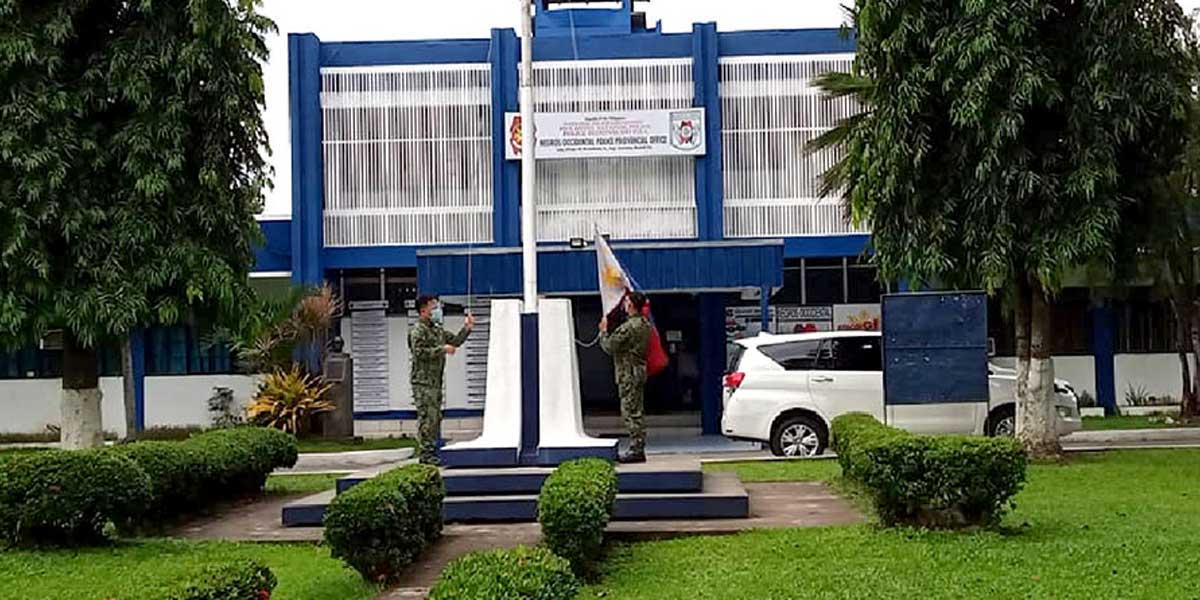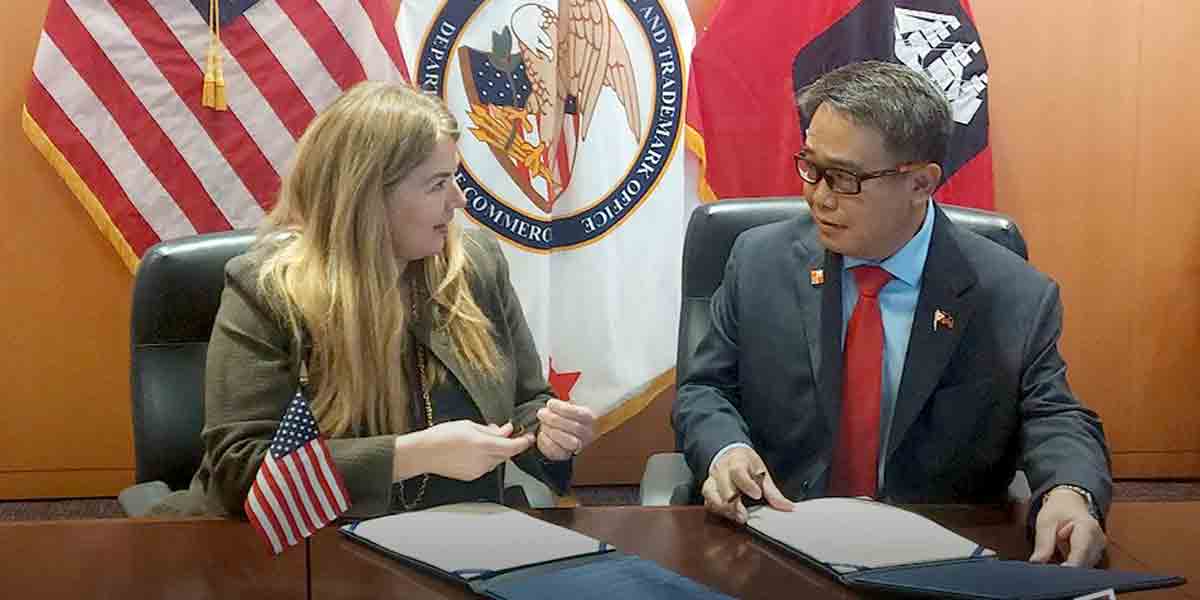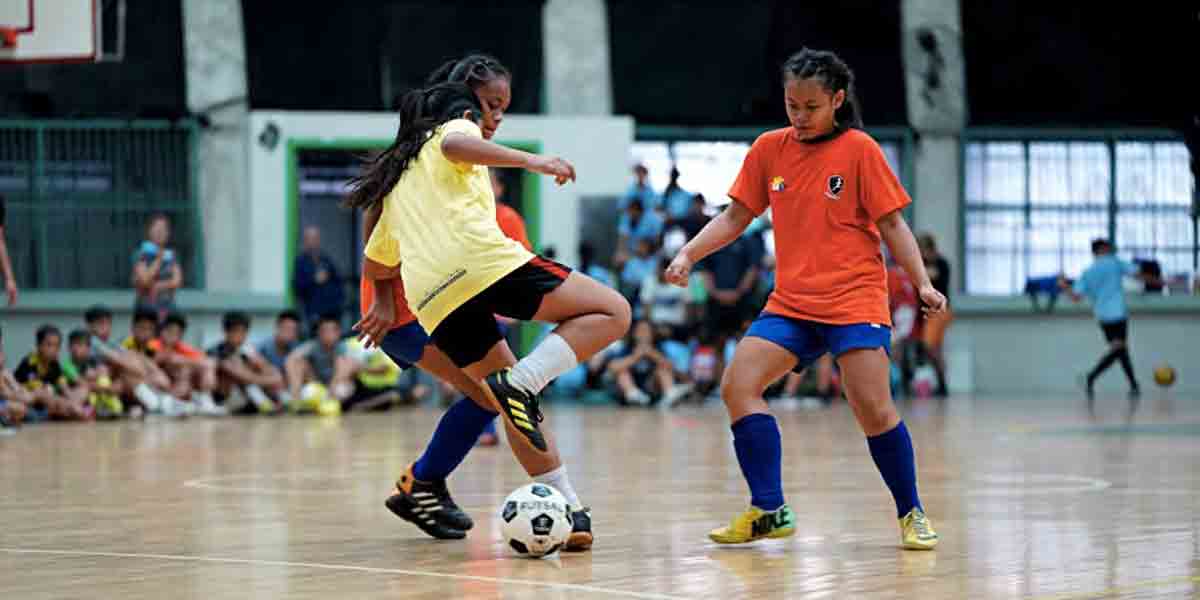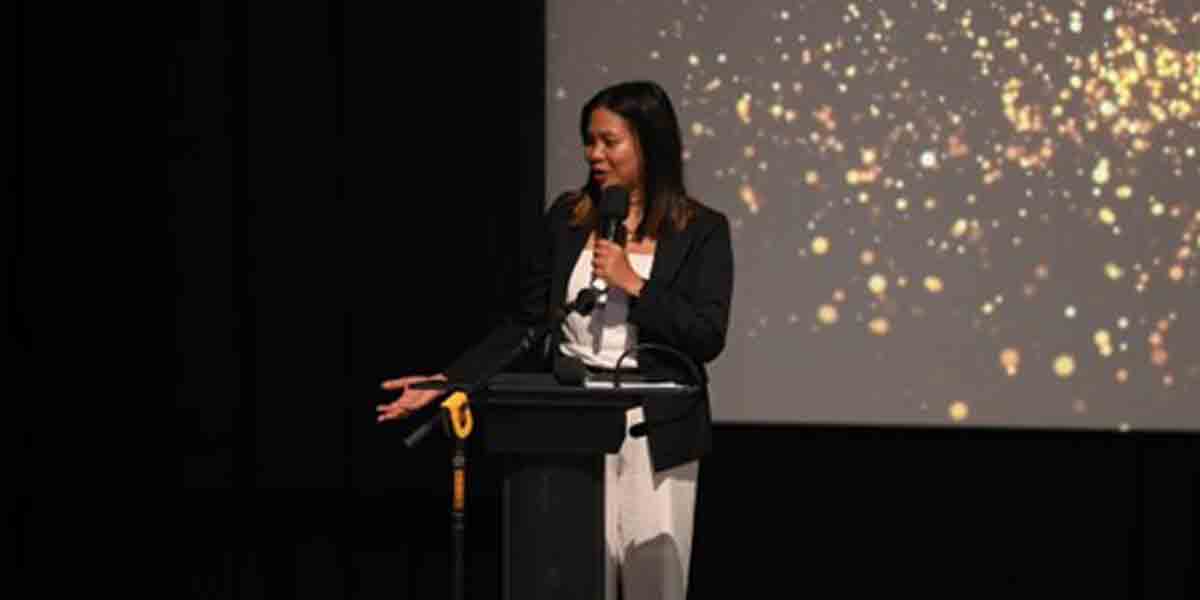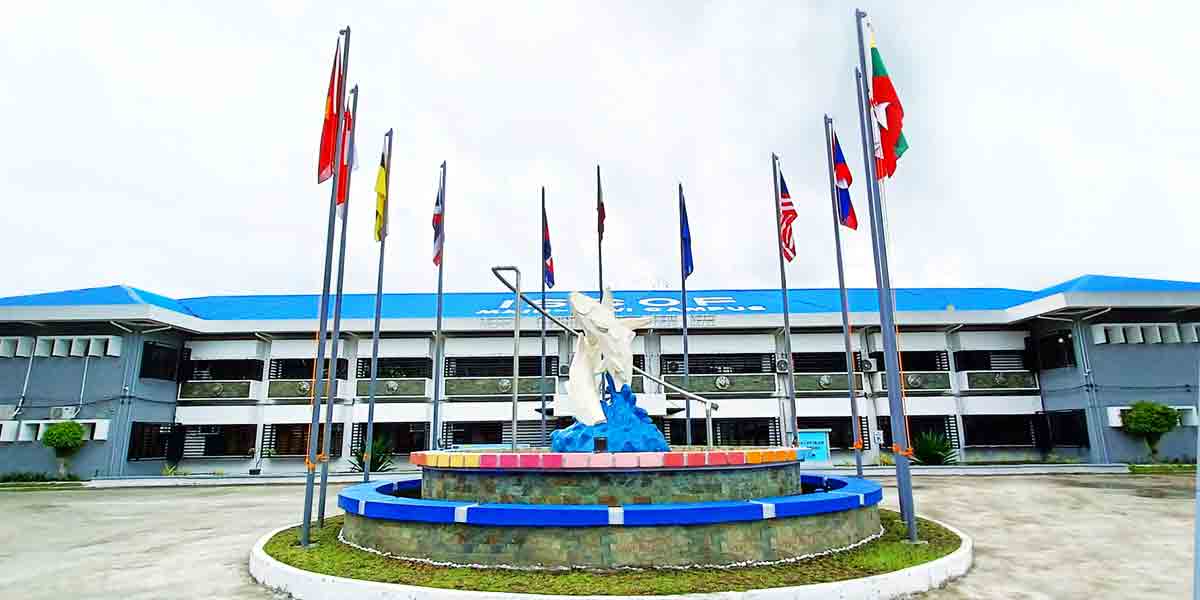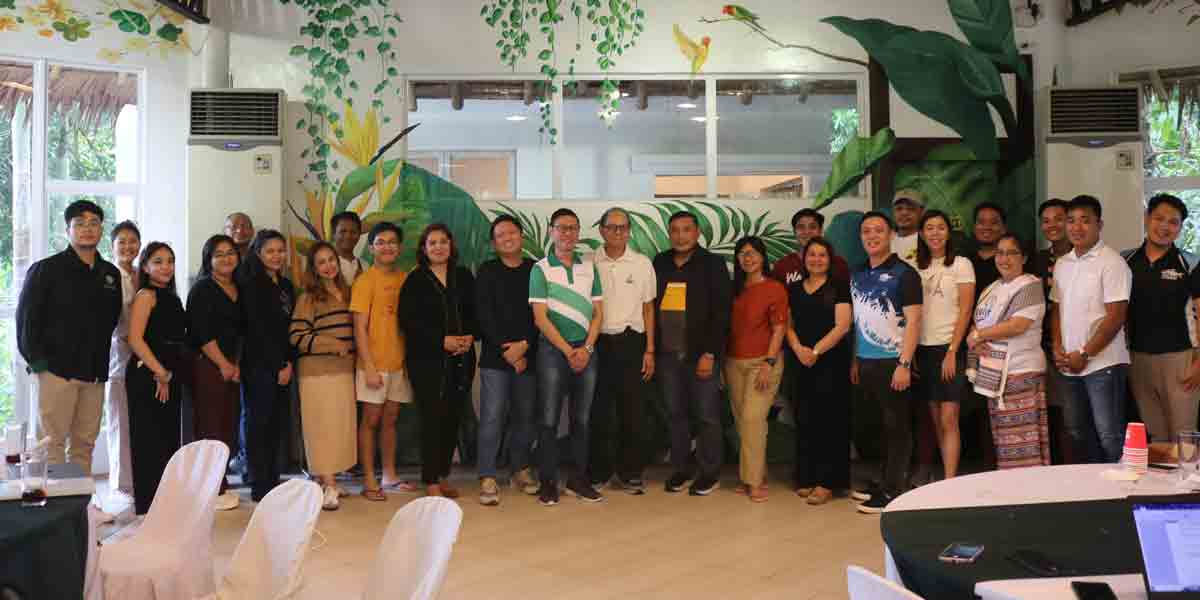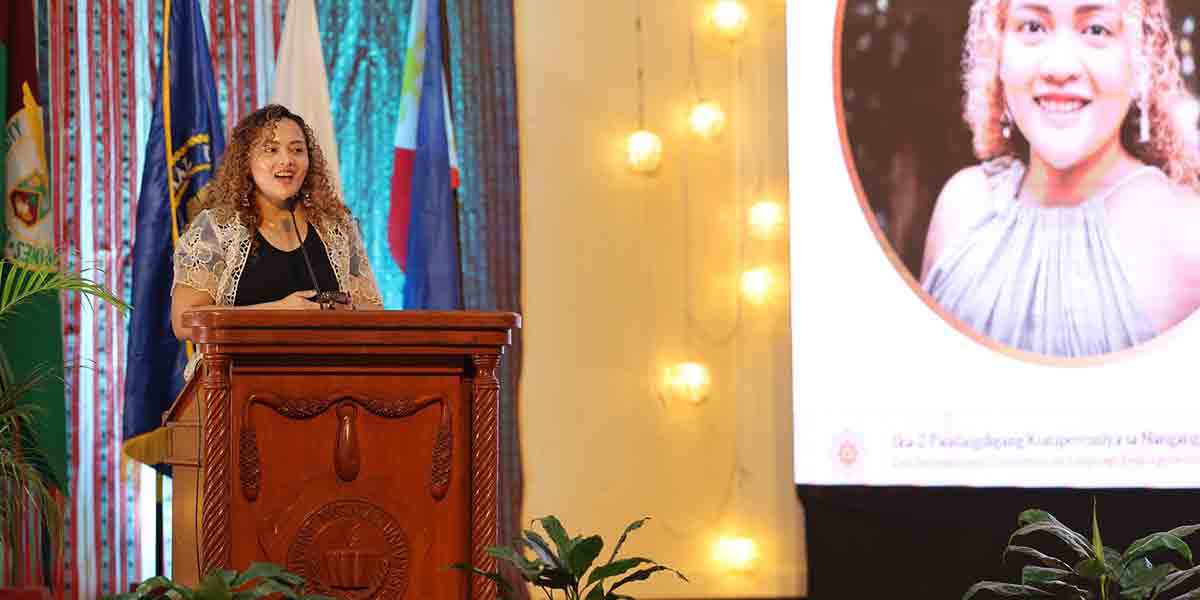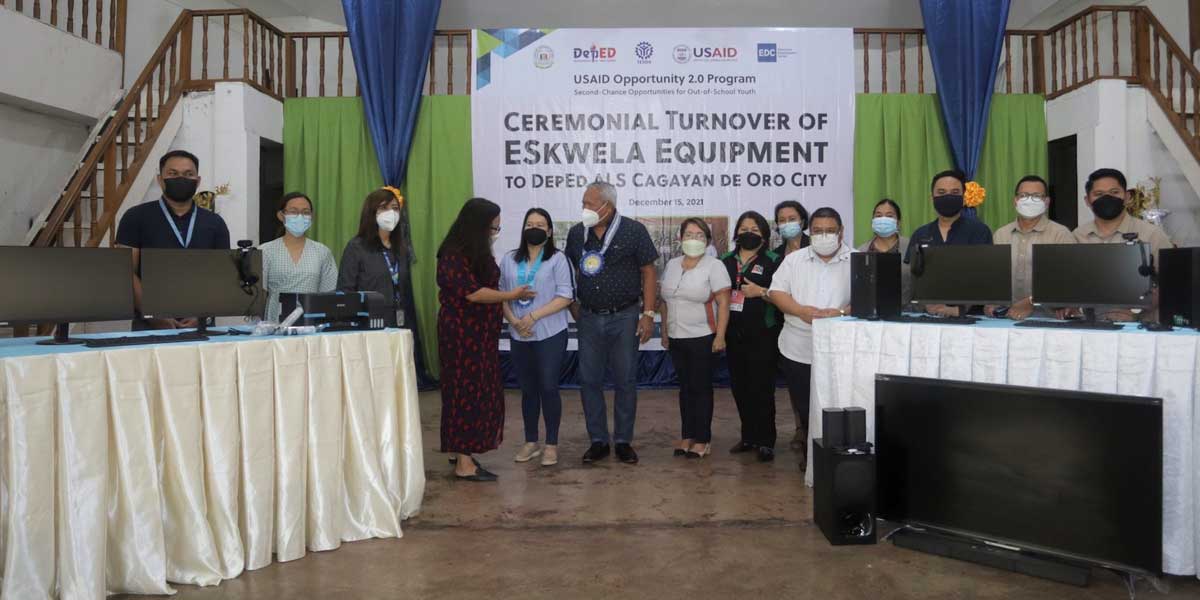
On December 15, the United States government, through the U.S. Agency for International Development (USAID), handed over Php2.2 million ($44,000) worth of distance learning equipment to support Cagayan de Oro City’s Alternative Learning System (ALS) e-Skwela Center.
Included in the equipment donation were 50 desktop computers, webcams, headphones, wireless routers, and other materials for distance learning in ALS.
USAID Philippines Acting Mission Director Sean Callahan virtually turned over the equipment to Department of Education (DepEd) ALS Assistant Secretary G.H. Ambat, who was joined by Cagayan de Oro City Mayor Oscar Moreno and Representative Rolando “Klarex” Uy.
The Cagayan de Oro e-Skwela Center is one of five being supported by USAID. The other centers are located in Legazpi City, General Santos City, Angeles City, and Davao City. The total package of USAID support for the centers amounts to Php12 million ($240,000).
Through its Opportunity 2.0 program, USAID has been supporting DepEd ALS’ continuity and COVID-19 response plan, which helps restore access to education for vulnerable out-of-school youth.
“The U.S. government, through USAID, has supported DepEd in reinvigorating education programs,” said Acting Mission Director Callahan. “We are working hard so that vulnerable, out-of-school youth, who have stopped school due to the pandemic, are given the opportunity and tools to adapt, grow, and have a better tomorrow.”
Assistant Secretary Ambat added, “The COVID-19 pandemic worsened the out-of-school youth’s lack of access to education. This magnified their vulnerability, leaving them less able to pursue education and progress toward better economic opportunities for themselves and their families. We are happy that USAID remains one of DepEd’s strongest partners, committed to supporting us in improving the quality of basic education for Filipino youth.”
Last year, USAID supported DepEd in developing self-paced ALS modules and trained ALS teachers to deliver this new content using new modalities to overcome pandemic-related challenges.
To date, more than 16,000 out-of-school youth have benefitted from these new modules. Over 2,500 ALS teachers and implementers have so far been trained on flexible delivery modalities nationwide.




